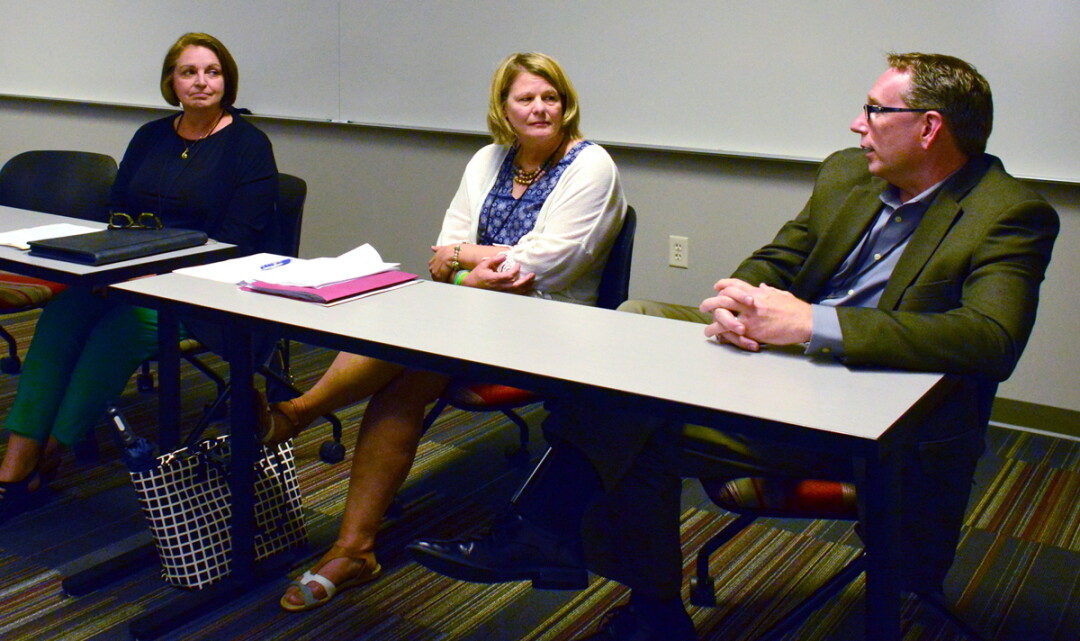The Shifting Job Landscape
UW-Stout speaker: Industry, education need to work together to meet labor needs

With an increase in contract workers and robots, the work landscape is ever changing, according to James R. Stone III, director of the National Research Center for Career and Technical Education at the Southern Regional Education Board in Atlanta.
Stone spoke at the Career and Technical Education Summit June 18-19 at UW-Stout in Menomonie. The event was for stakeholders in the career and technical workforce education field. About 90 people attended the summit in Harvey Hall.
In his keynote address, “Moving Toward High-Quality CTE: A Systems Approach,” Stone said 54 million Americans “are now freelance workers with no benefits, sick leave, or retirement. There is a lot changing fundamentally in the workplace.”
Robots are not only moving into manufacturing but farming, medicine, and human resources professions, Stone said. Meanwhile, it is getting more difficult to find electricians, plumbers, and carpenters.
He suggested more partnerships between industry and education within regional labor markets to meet the needs of business and industry and to provide career opportunities for young people. “Career development starts in elementary school if it is going to be done well,” Stone said. “Social skills are increasingly important in the workplace of today and tomorrow.”
Apprenticeships need to increase. Wisconsin has youth apprenticeships, but 70 percent of students in Austria and 60 percent in Germany take part in an apprenticeship, he said.
The Southern Regional Education Board works with 16 member states to improve public education at every level. It was created in 1948 by Southern governors and legislators who recognized the link between education and economic vitality.
A panel discussion, “Developing Leadership Potential in Others” featured Timm Boettcher, president and chief executive officer at Realityworks in Eau Claire, which is known for infant simulators; Chris Stratton, retired Menomonie school superintendent and educational consultant with CESA 11; and Lisa Maas, vice president of Human Resources at Northeast Wisconsin Technical College, Green Bay.
Boettcher said some industries are paying educators to learn about their companies to help bridge the gap between education and industry and to bring real-world examples back to classrooms. “Getting out there and learning about the real world, they can bring back ideas for curriculum changes,” Boettcher said.
Stratton said career and technical education teachers from Menomonie would visit business and industry for professional development. “Any time you can do some meaningful exchange, there is learning on both parts,” Stratton said.
Maas said employers need to understand the importance of the workers and how they help industry to succeed and particularly to grow leaders from within a company.
Boettcher has had to learn to allow people to fail, trusting they will learn from it, he said.
Stratton pointed out that leaders learn to allow others to grow and evolve, developing trust. “Trust is a big deal,” Stratton said. “Trust is something hard to earn and sometimes super easy to lose.”
UW-Stout offers a Bachelor of Science degree in career, technical education, and training, as well as a master’s, doctorate, and leadership certificate in the field.

